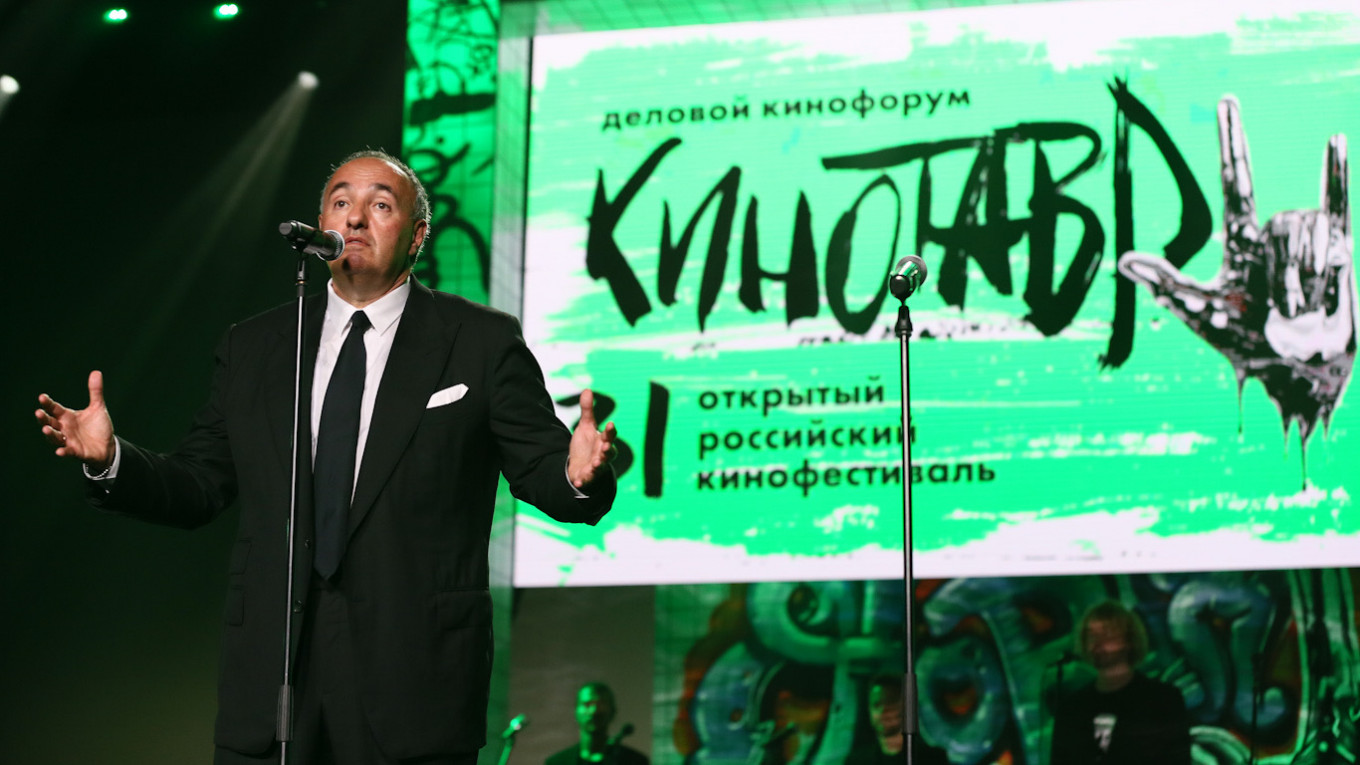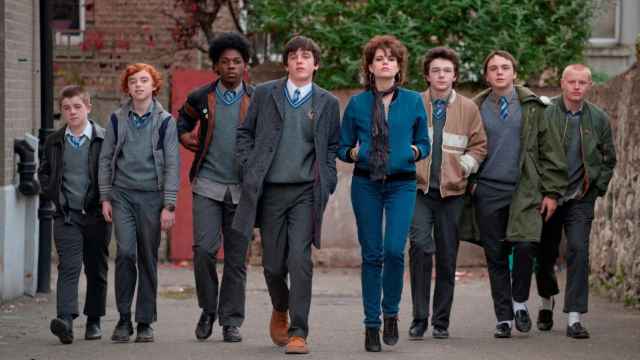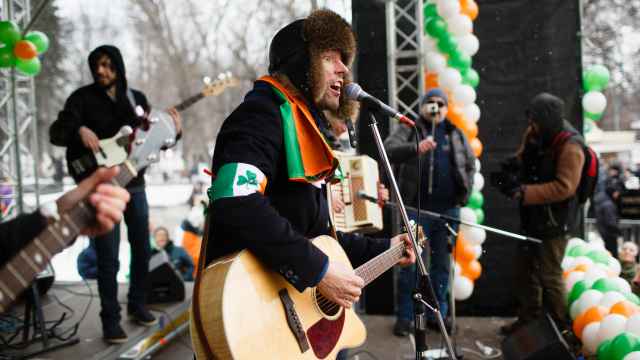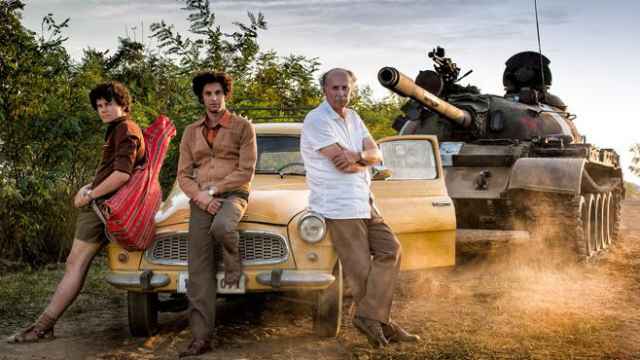In the era of Covid-19 Kinotavr, aka the Open Russian Film Festival, was postponed from June until September. It took place at the Black Sea resort of Sochi, and despite social distancing and other precautions, several directors, actors and film critics still got infected with the coronavirus. It’s just as well that we are watching the films from afar.
Over the years Kinotavr has increasingly become a showcase of the most innovative and independent cinema in the country, and the 2020 results are further evidence. The line-up this year was quite impressive, including works by both leading and up-and-coming directors.
The grand prize went to "Scarecrow” (Pugalo) by Dmitry Davydov, the first award given to a Yakutian film at Kinotavr. Yakutia (officially known as the republic of Sakha) is an enormous region in the Far East of Russia, known around the world for its diamond deposits. Recently Sakha has developed a viable cinema industry, lovingly nicknamed “Sakhawood.”
Yakutian films are regularly screened at international festivals and have achieved a certain degree of renown. One of Dmitry Davydov’s previous films, “The Bonfire,” a tragic tale of two old men in a Yakutian village who both lost their sons, received a Best Drama award at ImagineNATIVE festival in Toronto.
“Scarecrow” follows several days in the life of a female healer in a Yakutian village. Davydov told The Moscow Times that he became “interested in healing practices in the countryside and that’s how the story was born. And because of the theme, there was a certain fantasy element to it.”
The second most important award went to Filipp Yuriev, director of “Kitoboy” (The Whaler Boy), while Vladimir Onokhov received the best actor prize. Just like “Scarecrow,” “Kitoboy” was filmed at an exotic location — Chukotka.
Yuriev told The Moscow Times that he has been interested in Chukotka for a long time. “I traveled through isolated northern settlements and saw teenagers' lives there, which combined curiosity, interest in the outside world and isolation from it.” The story revolves around a young fisherman who becomes obsessed with making it to Alaska over the Bering Strait after meeting a mysterious webcam model from Detroit online. The film also received the GdA Director's Award at the Venice Giornate degli Autori festival this year.
“Conference,” the latest movie by critical darling Ivan Tverdovsky, received the award for the best screenplay. At 31, Tverdovsky is one of the youngest Russian directors of world renown; his three previous films — “Jumpman,” “Zoology” and “Corrections Class” did well at international festivals.
“Conference” is the first Russian film to deal with the sensitive subject of the 2002 hostage crisis in Moscow, when 850 actors and audience members at Dubrovka theater were taken hostage by a group of Chechen terrorists during the performance of a musical. The crisis led to the deaths of at least 170 people.
“Conference” tells the story of a group of survivors who gather at the Dubrovka theater on the 18th anniversary of the hostage crisis, focusing on one family in particular. Tverdovsky told The Moscow Times that even though he was not involved in the crisis, his parents’ friends worked on the musical and became hostages and a girl at his school died. “Just in general, over the course of my life, I often happen to come across people who are connected with this tragedy, so there is definitely something personal [in the choice of film's theme]," said Tverdovsky. Two of the actors were actual hostages in 2002 and tell their own stories in the film.
“A Man from Podolsk” by Semion Serzin only received one award, for the best original soundtrack, but it’s bound to become a cult classic. It’s based on an eponymous play by Dmitry Danilov, an author known for noticing the mundane details and turning them into something unexpected.
A young man from Podolsk, a Moscow suburb, is detained and brought to a police station without any cause. Gradually, it turns out that the film takes place in a kind of alternate reality, where the police are primarily concerned with intellectual development of Moscow residents.
“A Man from Podolsk” was staged in several theaters around Russia and even received a Golden Mask award. Serzin told The Moscow Times that he was on a charter plane on his way to Vietnam when he dreamed he got a Palme d'Or at Cannes for a film based on this play. “I canceled my holidays, returned to Moscow and started pitching the film idea,” he said.
The original soundtrack is by indie pop band OQJAV, and the band's frontman Vadik Korolev is the leading actor. Serzin said that he picked Korolev because “he does not know how to be fake and does not know anything about the filming process, just like his character doesn’t understand what the police want him to do.”
Finally, the award for the best short film went to “Sulphur” by Lana Vlady. Based on a story by Dmitriy Glukhovsky, author of bestsellers “Metro 2033” and “Text,” the film discusses the still taboo topic of domestic abuse set against the background of a post-apocalyptic city that looks like Norilsk.
You can watch the entire film below.
A Message from The Moscow Times:
Dear readers,
We are facing unprecedented challenges. Russia's Prosecutor General's Office has designated The Moscow Times as an "undesirable" organization, criminalizing our work and putting our staff at risk of prosecution. This follows our earlier unjust labeling as a "foreign agent."
These actions are direct attempts to silence independent journalism in Russia. The authorities claim our work "discredits the decisions of the Russian leadership." We see things differently: we strive to provide accurate, unbiased reporting on Russia.
We, the journalists of The Moscow Times, refuse to be silenced. But to continue our work, we need your help.
Your support, no matter how small, makes a world of difference. If you can, please support us monthly starting from just $2. It's quick to set up, and every contribution makes a significant impact.
By supporting The Moscow Times, you're defending open, independent journalism in the face of repression. Thank you for standing with us.
Remind me later.






